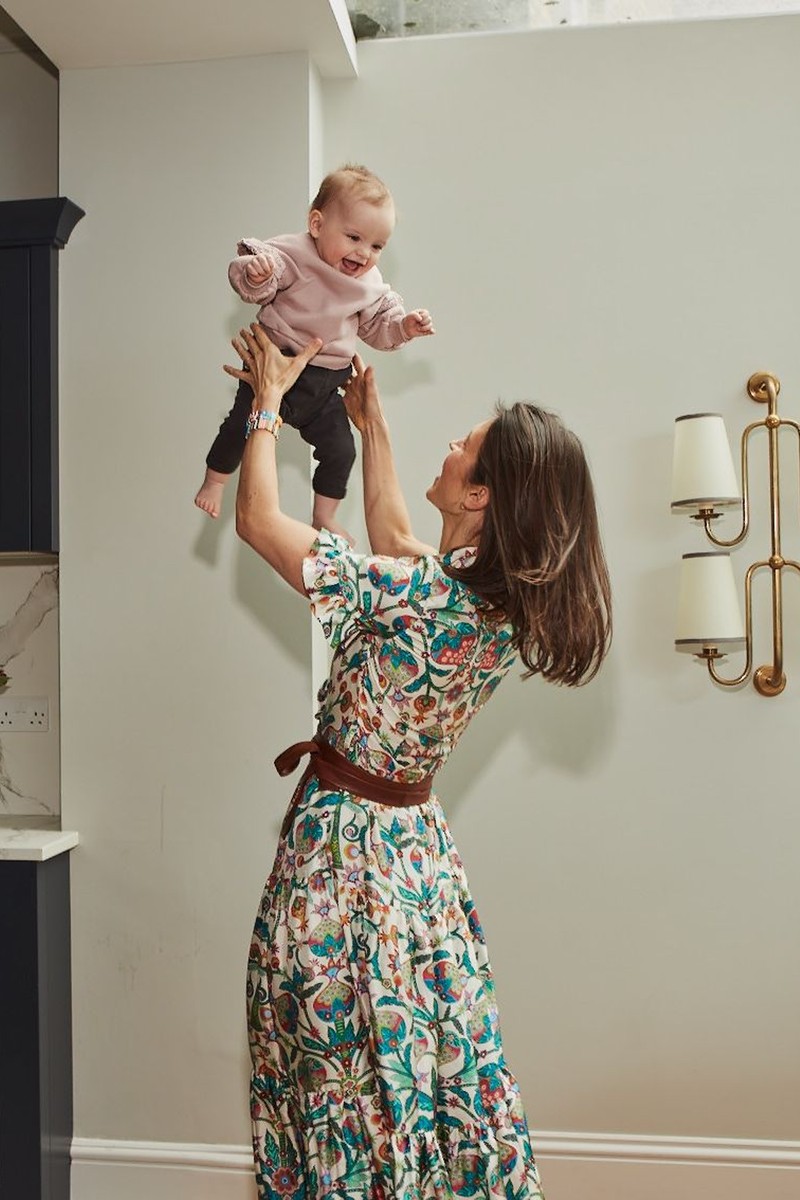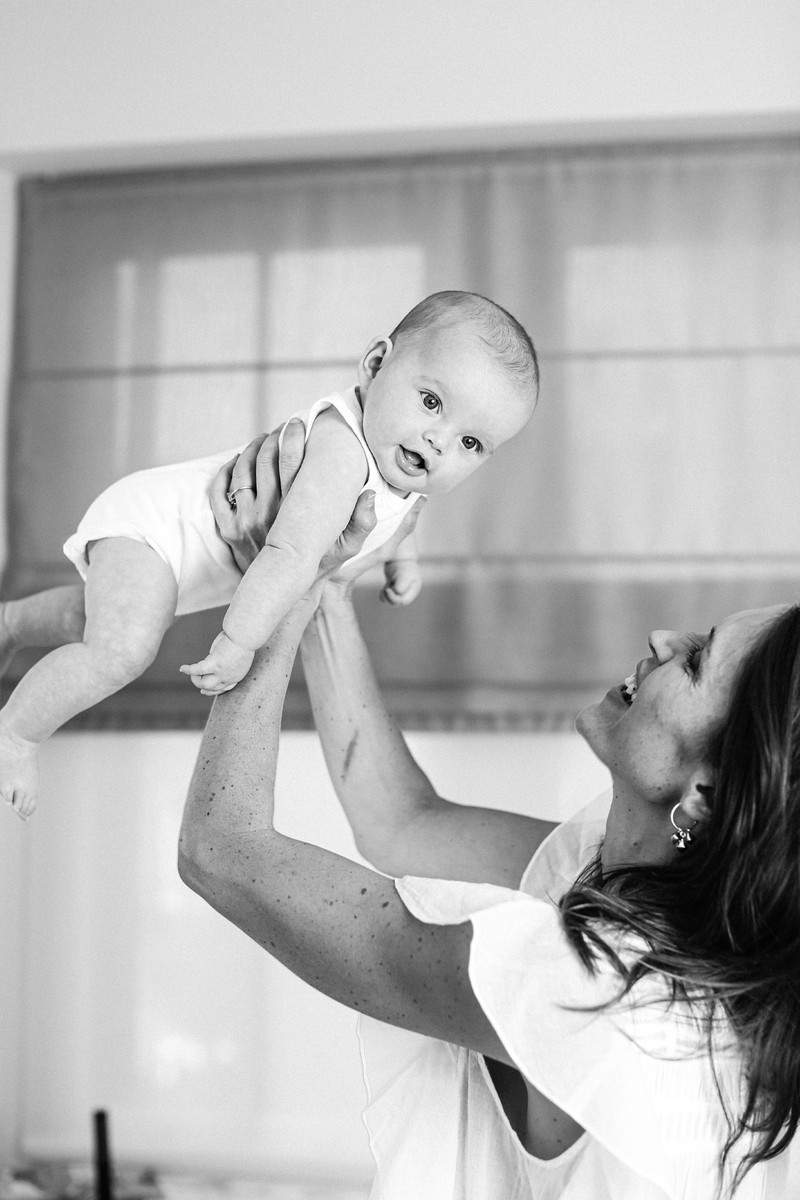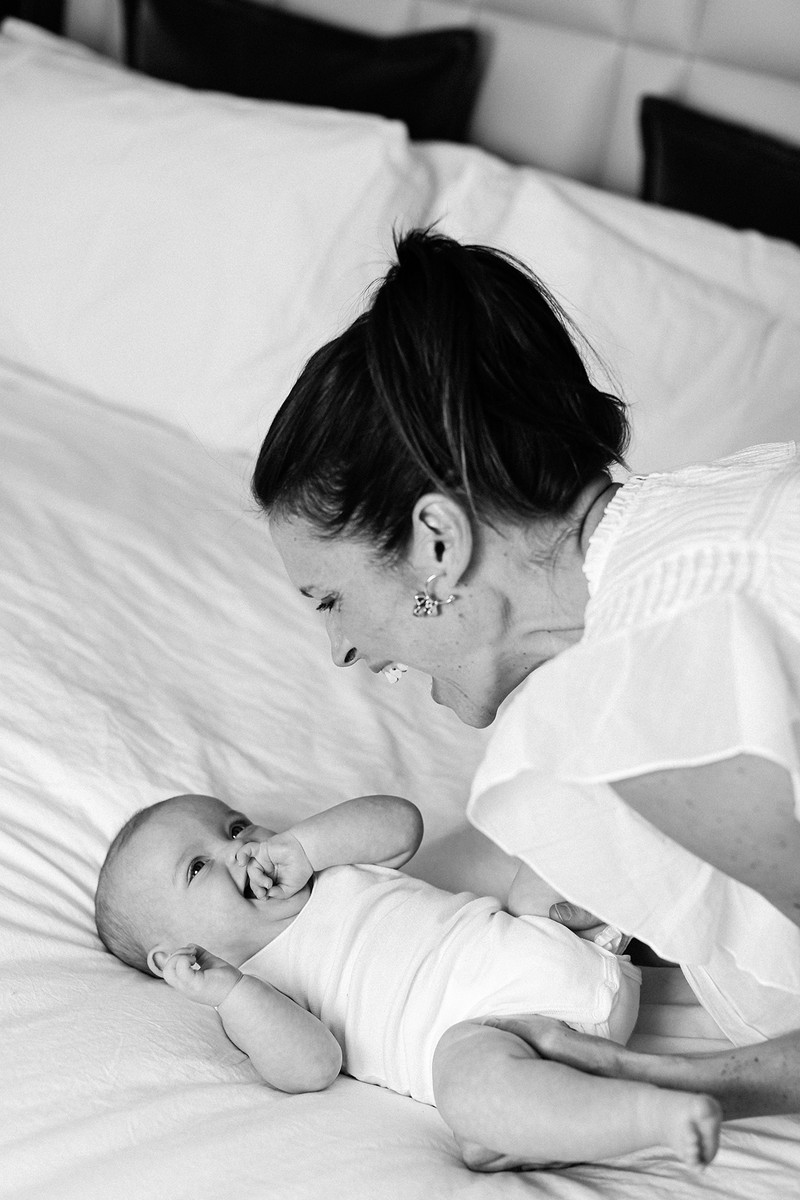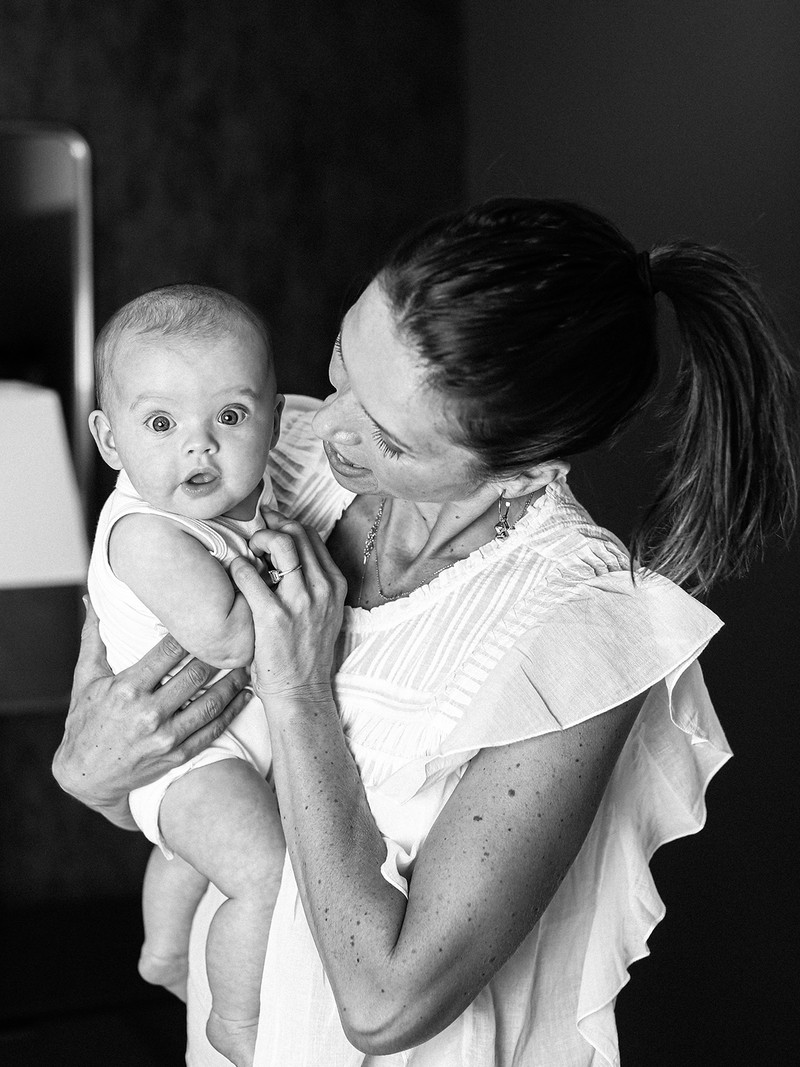My Journey Into Motherhood: Rhian Stephenson
It was easy for me to get pregnant but not easy for me to stay pregnant. I’ve had five miscarriages – three before Maisie and two since. The first time I fell pregnant it was by accident; I had the coil and wasn’t expecting it – when I found out, it was only because I was miscarrying. When I went to have the D&C (dilation and curettage) afterwards, the doctor asked me what my plan was, mainly because of my age. As soon as he said that, it really got into my head that the clock was ticking (I was 34 at the time). I didn’t think I was old, but in the world of fertility, it’s older. I got pregnant six months later and then had a miscarriage – at my three-month scan, I was told it wasn’t viable. I then had another pregnancy and miscarriage – by which time I was 36 – and it was all starting to make me feel quite anxious. The doctors asked me when I wanted to start IVF, but instinctively I felt we’d be okay. We’d done the tests. Instead, my husband and I decided we’d try IUI and that’s how Maisie was conceived.
My pregnancy with Maisie was still complicated. I had HG (hyperemesis gravidarum) – severe vomiting – until month seven and my first bleed at 28 weeks. My second bleed was at 29 weeks and I was put on bed rest at 30 weeks – for someone who ran a fitness business at the time, it was very mentally challenging. Maisie was born at 34 weeks by emergency C-section because I had another bleed; I was 37 years old. I’m thankful my husband was allowed to be at the birth because that changed shortly afterwards due to the pandemic.
Maisie was born three days before the first official lockdown. I’m convinced stress played a part – I closed Psycle that day and the same night I started to haemorrhage, which led to the emergency C-section. She had to stay in the NICU (neonatal intensive care unit) for just over three weeks. My husband wasn't allowed to come at all and I was only allowed in for a certain number of hours each day. It was upsetting because at the time, we had no clue if Covid was harmful for babies – all we saw were images of overrun hospitals in Italy.
With my second child, Lola, we also went down the natural route. I had two miscarriages before I conceived but managed to go full term with her. She was two weeks early and came home on the second day. I had a planned C-section because of my previous complications – I was also 39 by this point – and because she was so small.
My birth plan had been hypnobirthing, a water birth, lots of candles, playlists, massage – I was going to be the picture of wellness! But it didn’t turn out that way. Because Maisie was in the NICU, I didn’t get to breastfeed her, so she had problems latching on. I pumped and fed her my breast milk, but it’s not the same. It’s also exhausting and very painful. I’d wanted to breastfeed for a full year but I found the pumping so invasive and I got a lot of mastitis.

The whole experience was a lesson in learning to adapt. As a mother, you plan and plan, but there’s one thing you can’t control and that’s the birthing process and what happens next. You just have to stay as positive as possible. With Lola, I could breastfeed. I loved it but it was a shock. Despite being a mother already, it was still my first time breastfeeding, and the learning curve was steep. With a healing C-section and a toddler, it’s not easy.
By the end of the first six months of motherhood, I felt like a shadow of myself. With Maisie, my stress leading up to her birth was so high and I think that’s what led to a more challenging recovery. I was going back and forth to the hospital after the C-section instead of resting, I was walking more than I should have, which caused my scar to swell, and I was on the wards all day but didn’t always have a chair. I felt very anxious and the smallest thing would send me into a very emotional state. With Lola, because the birth was planned, the operating theatre was totally different – I had my playlist, everyone was really chatty, taking their time. While I didn’t want surgery, the whole experience felt very calm. The recovery was far less painful, too, although there’s a definite lack of sleep with a toddler around!
Prioritising your nutrition as a mother is challenging. After Lola’s birth, I was far better at thinking about myself and my wellbeing. I started taking my supplements while I was still in hospital – I did the small things I could to help me feel good. I haven’t had mastitis once and my energy is surprisingly good. I put that down to my nutrition and supplementation. I’m much more careful with my nutrition now. When I eat something bad, the effects are so much worse than when I was in my 20s. Luckily, my motivation for staying on track is so clear now – I want to be present and well for my children.
Be mindful of how you feel and how food makes you feel. When you have a young baby, and you have no food in the house, you have to get some – which means taking a shower and getting dressed, and getting the baby dressed… It’s important to remove as many of these barriers to success as you can. The hard parts are the shopping and planning, so try to have some simple things in place, like an Ocado order, so you aIways have food. I keep my own meals simple with lots of vegetable traybakes and easy sources of protein. If that means I eat the same thing for three days straight, then so be it. You don’t need to follow a special diet – just keep it as whole and natural as possible.


Over time I’ve worked out my ideal food routine. I do well on a savoury breakfast that contains a fair amount of fat – usually half an avocado with fruit and nuts on the side or leftovers from the night before. I also make one of our Artah loaves – I love a few slices of that with tomatoes, salt and olive oil. For lunch I have protein and a salad, or a traybake of protein and vegetables. I love sauces, so at the start of the week I’ll make something like a tahini sauce, and keep it in the fridge. Dinner varies – it might be roast chicken and squash or a tofu stir-fry or a dahl. I’m gluten free and have a dairy allergy, so I tend to avoid eggs.
As a mother, it’s crucial to know what’s going on with your hormones. You need to know, is this a pattern? A one-off? Or are you just tired? Many of us get the baby blues (it comes on as a sadness; you feel very teary and then it lifts). But if three to six months in you’re still experiencing negative feelings that are stopping you get through the day or you feel so sad and depressed you can’t function, or you aren’t bonding with your baby, you need to address it. I went to the doctor after six months because I had heart palpitations. I was feeling wired even though I was exhausted, and it turns out I had a problem with my thyroid (which is actually quite common in post-partum women).
New mums are likely to be lacking in sleep – which will impact your mood and make you more insulin resistant. To help, I take our Essential Omegas (omega-3 has been shown to help post-partum depression and recovery and boost energy; it also enriches breastmilk with EPA and DHA). Vitamin D3 is also essential, especially in winter, and Cellular Hydration is one I love – it’s great at combating dehydration, which is a problem associated with breastfeeding and exhaustion. It also contains maca, which is good for post-partum hormones. When I’m not breastfeeding, I also take Enhanced Nootropics to combat stress and boost my mood. I like to think about supplements this way – what can I take now that will help me optimise my life? That said, always check with your doctor before you start taking any supplements in pregnancy or when breastfeeding.
I work out less now than ever before. I’m in the office three days a week, though, so I run in and run home on those days, and when I work from home, I do a HIIT or Pilates class. At the weekend, my husband and I take it in turns to get out of the house, so I usually do a Heartcore class or similar to get some headspace. But don’t worry about exercise in the early days – it’s hard to fit in and difficult after birth.
Balancing work, a new baby and a toddler is tough. Maisie acts out sometimes but you need to keep a calm head and just give them as much love as possible. I’m trying hard to carve out time exclusively with her. With a newborn you’re always holding them, and that’s not easy for the older child to witness. One thing I’ve done is let the team know that between 6pm-7pm, I’m doing bed and bath time and I can’t be contacted. I remember the actress Julianne Moore said, “It's not difficult to take care of a child; it's difficult to do anything else while taking care of a child.” It’s so insightful. My philosophy is that when I’m with them, I try to be present.
For more information visit Artah.co.
DISCLAIMER: We endeavour to always credit the correct original source of every image we use. If you think a credit may be incorrect, please contact us at info@sheerluxe.com.
All products on this page have been selected by our editorial team, however we may make commission on some products.

/https%3A%2F%2Fsheerluxe.com%2Fsites%2Fsheerluxe%2Ffiles%2Fwebsite-images%2F2025%2F04%2Fnew-parenting-background-image.jpg?itok=au3AjSlw)